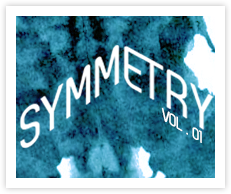

Getting to know Clichés
Melissa Noonan // February 9, 2012

Gerald Brenan believed that clichés are no more than “dead poetry” (Brainy Quotes, 2012, para. 1). If we take a look at the historical linguistics surrounding the word, he was right. According to an etymological dictionary, ‘cliché’ comes to use from the French word, clicher, which means to stereotype (Partridge, 1977). It is usually a phrase taken from the work of a brilliant wordsmith of long ago. A clever author would create such an original description or metaphor that the masses would pick it up and, through regular use, ironically counteract the phrase’s originality.
Lacking in originality is often coupled with insincerity and is not something that writers want to be known for – especially those trying to make a connection to a specific public. This is why many of our public relations and English professors preach against the use of clichés. However, sometimes it’s difficult to avoid, in which case most readers are slightly more forgiving. The key is not to over-use them and to ensure sincerity and factuality (amongst other things, like proper grammar – but that’s another article) in your writing.
It is also wise to make sure you fully understand any metaphors or well-known phrases that you do write; do not assume you understand something unless you’ve researched it thoroughly. Sometimes phrases are passed down throughout the ages and we say or write them without a second thought. But what is acceptable in society changes over time. Remember, for example, phrases like, “that’s retarded” or “that’s so gay” were used to describe something negative just a few years ago. But after examining this use of language, it became quite clear that these phrases are offensive to people who are homosexual or to those with a learning disability, for example.
It is a wise practice to be informed about the exact meaning and even the history of a phrase before putting it out in the public domain. If you do decide to use a cliché in your writing, make sure you understand exactly what it means and where it comes from. Here are a few I found interesting:
It’s all Greek to me – This phrase comes from Shakespeare’s Julius Caesar. In the play, the character Cicero spoke in Greek to ensure those surrounding him did not understand what he was saying. However, Casca, who he was speaking to, also did not understand what he was saying and declares: “For mine own part, it was Greek to me.” Today, this phrase is usually expressed when someone does not understand something (Ammer, 2011).
Misery loves company – The term can be traced back to Sophocles’ Oedipus at Colonus where Antigone states: “So sorrow sorrow props,” after she and her father reunited, however both characters have undesirable circumstance surrounding them. In our modern day and age, it often describes how negative situations are often more tolerable when you have someone else to share the experience (Ammer, 2011).
A piece of work – Another Shakespeare reference, this time coming from Hamlet as the Prince of Denmark declares, “what a piece of work is a man.” In this speech, Hamlet contemplates the human condition, but today, this phrase is used to describe an arrogant and/or pompous person (Ammer, 2011).
The Third Degree – The third degree is the highest level a leader or master can achieve in the Freemasons. This prestigious honour is only attainable after a number of long and tedious tests. Today it is used when many questions are asked to a person (Ammer, 2011).
Follow in the footsteps of – A popular phrase that comes from the book of Peter in the bible, “Because Christ also suffered for us, leaving us an example, that ye should follow his steps…” Today it usually means for someone to continue along the same path as an authority figure, whether it be a daughter having the same habits as her mother, or someone replacing a previous employee/manager at an organization (Ammer, 2011).
There are thousands of clichés out there, some with surprising origins, but you won’t know unless you look them up. There are, of course, different explanations depending on where you look. The source I chose was Christine Ammer’s The Facts on File Dictionary of Clichés, so it’s probably wise to look at several sources before the final draft is published. But, as mentioned before, it is important to know what you are saying when you’re writing and knowing where it comes from will help you determine if it is appropriate given your topic and audience.
___________________________________________________________________________________________
Reference
Ammer, Christine (2011). The Facts On File Dictionary of Cliches. Infobase
Publishing. Retrieved December 31, 2011, from Ebook Library.
Cliché. (2012). Brainy Quote. Retrieved January 3, 2012 from
http://www.brainyquote.com/quotes/quotes/g/geraldbren102424.html
Cliché. (2012). In Wikipedia. Retrieved January 3, 2012, from
http://en.wikipedia.org/wiki/Clich%C3%A9
Partridge, Eric (1977). Origins : An Etymological Dictionary of Modern English.
Routledge. Retrieved January 02, 2012, from Ebook Library.

Pingback: Symmetry » Why you shouldn’t use clichés in your writing()